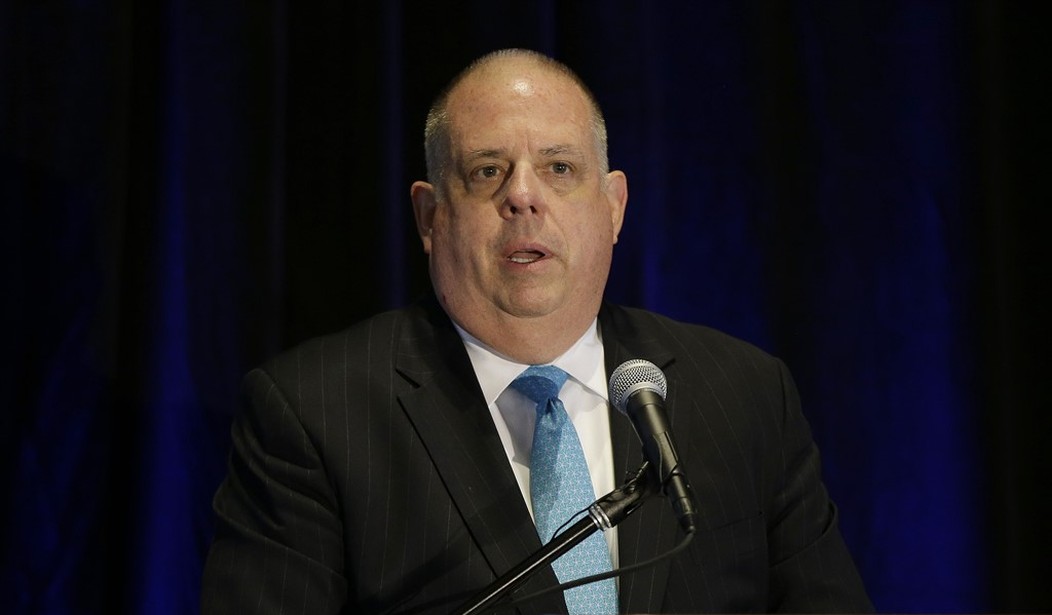Does the First Amendment require elected officials to give access to everyone on social media? The ACLU thinks so, and it will take two Republican governors to court over their decisions to block abusive Twitter and Facebook users. Branches in Kentucky and Maryland filed lawsuits this week on behalf of the blocked, arguing that they have a First Amendment right to petition their government:
Championing the First Amendment rights of Marylanders to communicate with their elected officials using social media, the American Civil Liberties Union (ACLU) of Maryland filed suit today in federal district court, challenging Governor Larry Hogan’s policy of censoring constituents’ speech on his official Facebook page by blocking those who disagree with him and deleting their comments. The question of constituent censorship on social media has become a pressing issue across the country, including a lawsuit against President Donald Trump for blocking those expressing unwanted views from his Twitter page. The ACLU lawsuit, filed on behalf of four individuals who have been censored by Governor Hogan, seeks a permanent injunction against the Governor’s unconstitutional social media policy as enforced by the Governor and his staff.
“The highest purpose of the First Amendment is to protect the right of Americans to engage in political speech and to petition the government to address their concerns,” said Deborah Jeon, legal director for the ACLU of Maryland. “As the Supreme Court ruled in June, and a federal judge in Virginia echoed just last week, social media has become a vital means for constituents to communicate with their elected officials. It violates both the First Amendment and Maryland’s own social media guidelines for government officials to block out any voices of dissent or those simply raising questions about positions taken by public officials sworn to serve.”
This extends the fight that Jazz covered this weekend, although the ACLU wasn’t involved in that lawsuit. A federal court ruled that a local government had illegally removed comments from constituents on their Facebook page because of the content of the remarks, criticizing the Loudoun County Board of Supervisors. Judge James Cacheris decided that the offense over such criticisms was “an illegitimate basis” for deleting them, amounting to “a cardinal sin under the First Amendment.”
Er … cardinal sin? Doesn’t the First Amendment bar the establishment of state religion? I kid, I kid.
Needless to say, Governor Larry Hogan thinks this lawsuit over the same issue is a joke, too:
A spokesperson for Hogan’s office dismissed the lawsuit as “frivolous” and “a waste of taxpayer dollars.”
“The governor’s office has a very clear social media policy, and we will continue to remove all hateful and violent content and coordinated spam attacks to foster an open and constructive dialogue,” said deputy communications director Amelia Chassé in a statement.
“Ultimately, with all of the challenges we face in this country and across the globe, we can all agree that the ACLU should be focusing on more important issues than monitoring Facebook pages.”
A waste of taxpayer dollars? Certainly, but it’s not quite frivolous, as Cacheris’ decision demonstrates. The issue at hand is not freedom of speech in the First Amendment — it is the freedom to petition one’s government for the redress of grievances. That was a significant issue in Packingham v North Carolina in a case where the state had barred a sex offender from accessing the Internet. Noting that “Governors in all 50 States and almost every Member of Congress have set up [social media] accounts for this purpose” of petitioning their elected representatives, the Supreme Court determined that a broad bar on access to these options for political petitions violated the First Amendment even for a sex offender, and that any access bans had to be narrowly tailored to illegal activities.
At issue, then, is whether these official accounts can block access on an individual basis, as well as what kind of content restrictions might pass muster for deletion from social media accounts. With Packingham in mind, the answer to the first question will almost certainly be no, while the second will be murkier. Outright blocks of users would likely be akin to barring individuals from City Hall or staging protests on public property outside of offices, of which the Supreme Court would probably take a dim view even without Packingham as context.
Deleting comments is another matter. Cacheris hints at a content test, in which criticism of the government has to remain up but off-topic spam and trolling might be acceptable for deletion. That would certainly be reasonable, but it’s likely to enter into Lewis Powell territory for defining obscenity — judges will have to know it when they see it, presumably. The practical effect of that kind of test will be mainly a full-employment environment for litigators and government attorneys.
The whole thing might turn into such a headache that public officials might just decide to eschew social media accounts entirely. That’s not such a dire outcome, but there are other options. On Twitter, at least, there’s another option — the mute button. That allows others to see the content and respond to it, but the user doesn’t see it at all. Courts might look at that with some skepticism … if anyone can prove they’ve been muted. Twitter doesn’t signal that back to those who get muted, so they never know about it. Besides, citizens have a right to petition government, but don’t have a right to a response. As long as they can access the official accounts of governments and politicians, that should be enough to satisfy even the ACLU’s definition of petition.







Join the conversation as a VIP Member